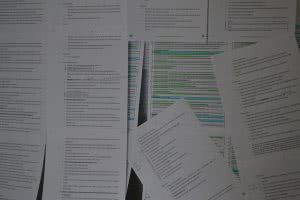
Flickr user Dom Pates
You know what you need to focus on, but do you know which things to avoid in the ACT essay? Sometimes during the ACT the essay section, students inadvertently do things that cause them to lose points. Luckily many of the mistakes are easy to avoid if you know about them.
Here are some things to avoid in the ACT essay:
Slang: Slang may be misinterpreted and can give your sentence a completely different meaning. So instead of saying something like “Consumers get ripped off because most chip bags have a ton of air in them” go for “Many consumers complain that the air-to-chip ratio is far too high.”
Contractions: While “can’t”, “won’t”, “isn’t” and similar contractions are universally accepted, the ACT (and other formal essays) frowns on their use. And hey, using cannot, will not, or is not ups your word count anyway.
Repeating yourself: When you repeat yourself, you are telling the reader you do not know what to say and are just trying to take up space. You can recap your argument in the conclusion, but don’t say anything word for word.
Long lead-ins: Long lead-ins can be exhausting to read and can look like you are stalling while trying to figure out what to say. Keep things succinct and to the point.
First person perspective: Avoid using “I” or “We” in the ACT. It’s meant to be a formal persuasive essay, not a personal one. So keep things professional in third person.
Passive voice: Writing in passive voice weakens the impact of your words, while using active voice makes your writing stronger and more direct. A simple trick to tell the difference between passive and active is the “By Zombies” trick. If you can add “by zombies” to a sentence, it’s passive.
For example: “Amanda was eaten…by zombies” is passive. While “Zombies ate Amanda…by zombies” doesn’t work. “Zombies ate Amanda” is active voice, and thus stronger.
Unnecessarily fancy words: Using simple words that convey your message clearly is the secret to writing a winning ACT essay. While you can (and should) sprinkle in a few advanced vocabulary words here and there, you don’t need to cram them in. Your goal is to get a persuasive point across; you need to be clear. Shoving an entire thesaurus into your essay won’t help you.
Check out how your ACT score affects your acceptance odds with College Raptor!





